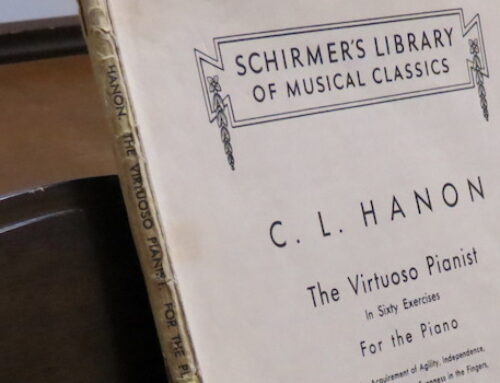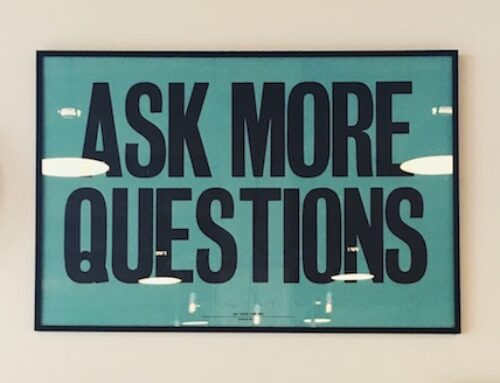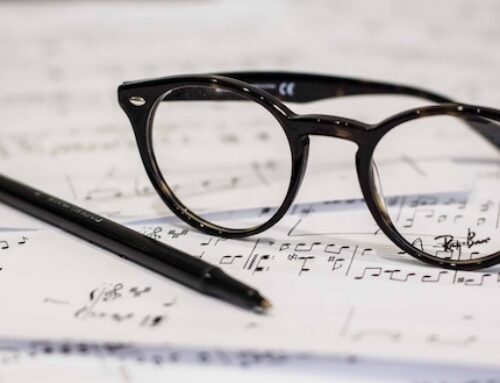I’ve been blessed with incredible piano teachers that have prepared me wonderfully for music school. But music is such a huge field, and there’s only so much you can cover in 30 minutes or even 1 hour per week. Teachers must prioritize and decide how to best use the small amounts of time they have. I’ve faced this challenge weekly for years, and still haven’t figured it out. Obviously, as private instrument teachers, the main goal is to teach performance of the instrument. We want to work on pieces with our students. Most piano teachers also find it incredibly important to cover certain amounts of theory as well. Having freshly experienced the transition from private piano lessons to full-time music school, however, I’m inspired to help my students not only learn to play the piano, but also to develop other skills that I wish I had going into music school. I’m still learning how to do this, especially with the limited lesson time, but I thought I’d share the 5 things I wish I was better at before college.
1) Sight-Reading
Note-reading was never my strong point as a kid. I learned to read notes using sayings that correspond to the notes on the staff like “Every Good Boy Deserves Fudge” for the treble clef lines, and “All Cows Eat Grass” for the bass clef spaces. For a long time, these were my “crutches.” I had to “figure out” the notes before I could play a piece, and teachers often had to write in notes that I kept forgetting. I did gradually end up memorizing my notes, but reading notes quickly was always a challenge. I don’t remember the first time I ever sight-read, but I was probably already 12 or 13. I had an amazing teacher for the last 6 years before I started college who understood the value of sight-reading and was good at it too. I remember being so impressed when she sight-read pieces I was about to spend hours learning. She was the one who had me work on my sight-reading. We purposely chose sight-reading as one of my “Musicianship Phases” for my Piano Guild Auditions so that I would have to sight-read in front of someone else—and I practiced for that. I think this came a little late in my music education though.
Through my teaching experience, I’ve discovered that empowering children with “crutches” for their note-reading can be detrimental to their skill development in this area. It’s so important that notes are memorized right off the bat. I think this would have made a big difference for me. I so wish I had started sight-reading as soon as I had started reading notes at all. I believe it’s a skill that can grow with you, just the way piano playing does. Start with the little, easy pieces and gradually, over the years, improve until you’re sight-reading incredibly complex music! Since I started sight-reading relatively late in my piano education, I’m now working to shrink the large gap between the complexity of what I can play and the complexity of what I can sight-read. Not only is sight-reading an incredibly useful skill to have as a musician—and especially a pianist—but it can make a huge difference in the number of opportunities someone can take advantage of in music school. We only have so much time to practice, you know!
2) Aural Skills
I still remember reading that sight-singing was a requirement for the Ithaca College audition. It terrified me. I thought, “Is that what it sounds like? Do they expect me to see notes on a page and be able to just sing them?!” Yep! No one expects you to have perfect pitch or anything (and for the audition it was more just for placement purposes), but yes, eventually they do expect you to be able to sing new material from a piece of paper. And it doesn’t have to be as terrifying as you think. My wonderful piano teacher helped me prepare, I practiced my solfège, and it was fine. My first year of college, I learned that not only do professors expect you to sight-sing, they also expect you to notate melodies and harmonies. What?! I’m not Mozart! I discovered that with practice, however, these skills can be learned. Sight-singing I and II were some of my hardest classes, but I did relatively well. College moves so quickly though. I don’t feel like I had enough time to really master the skills I was expected to learn in each of those classes. Even the listening aspects of Theory I were incredibly challenging to keep up with for me.
I wish I had started developing these skills, especially my ear, much sooner. If I had been exposed earlier and practiced aural skills before going to college, I think I could have more successfully mastered the skills covered in my college music classes even though they move so quickly. These are invaluable skills to have as a musician.
3) Knowing My Keys Inside and Out
Your professor plays a short melody. You sing it back with solfège. Now that you know the melody, can you sing it back with note names in any key? This was an exercise my excellent Sight-Singing II professor occasionally had us do. Since I couldn’t always quite keep up, it mostly served to reveal to me how little I knew some of my keys. I know all my scales quite well, but do I know my keys inside and out? Not so much. I know my basic keys, but not all of them. I want to be able to tell you what “la” is in the key of Db without thinking for a second, and I want to teach my students to do that too.
4) Instant Interval Identification
The “skill” of instant interval identification, if that even exists, is one that I desperately want. Being able to look at an interval on the staff without having to think twice about whether it’s a sixth or an octave—knowing off the top of my head, away from a keyboard, what interval an Eb to a C is would make a world of difference for endless circumstances in music school: sight-reading, music theory homework, sight-singing class. I know my intervals, just not fast enough! I have to “figure them out.” That makes things take so much longer.
I see this in my students too; they do their theory assignments and identify all the intervals correctly, but do they really know them? No! They count the number of lines and spaces between notes to figure them out. I have some ideas for resources I’d like to create to help develop the skill of instant interval identification, but I’m still brainstorming. I recently discovered an app called “Music Intervals,” which could be promising, but I’m not thrilled for various reasons, especially since it gives no indication whether you identified it correctly or not.
5) Reading Alto and Tenor Clefs
As a pianist, how often do I need to read alto and tenor clefs for my own performance? Let me put it nicely—never. As a pianist, how often would being able to read alto and tenor clefs come in handy? All the time! Collaboration, transposition, orchestral reduction, to name a few instances where it would make a difference. Piano students are hardly exposed to the clefs until they get to music school though. I knew how to figure out the notes in a C clef, but I couldn’t read alto clef before I started college. A little more practice and actual memorization of notes in both alto and tenor clefs would have been useful going into music school. I think “Noteworks,” an app that I’ve just barely started exploring, might have potential for helping pianists to practice alto and tenor clefs.
Because music school is so demanding, I don’t have extra time to practice developing these skills outside of what’s required for my classes. That is precisely why I wish I had had more practice with these things before music school. And why I hope to expose my students sooner and hopefully instill some of these skills by the time they graduate high school. Please share your thoughts in the comments section. I’d love to hear if you have specific ways you teach these skills or practice them yourself, or even if there’s something you wish you had learned before music school!
Then, figure out the solfège for happy birthday and check yourself at the piano (in any key). Once you’ve confirmed the solfège, sing the note names for happy birthday in every major key—maybe one key per day! (Note: You can keep singing it in whatever key is most comfortable, just switching the note names, unless you have perfect pitch and that bugs you). If you’re really motivated, pick the key you had the hardest time with and notate it in alto and tenor clefs.










Wow. You know a lot of stuff I don’t know.